IDB Digital & Alternative Credentials workshop
Last week, Bryan Mathers and I were in Washington DC, the home of American democracy, to work with the Inter-American Development Bank…
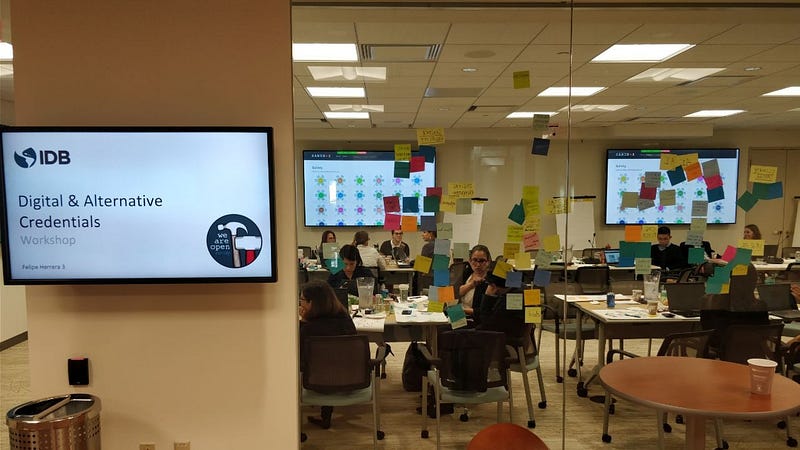
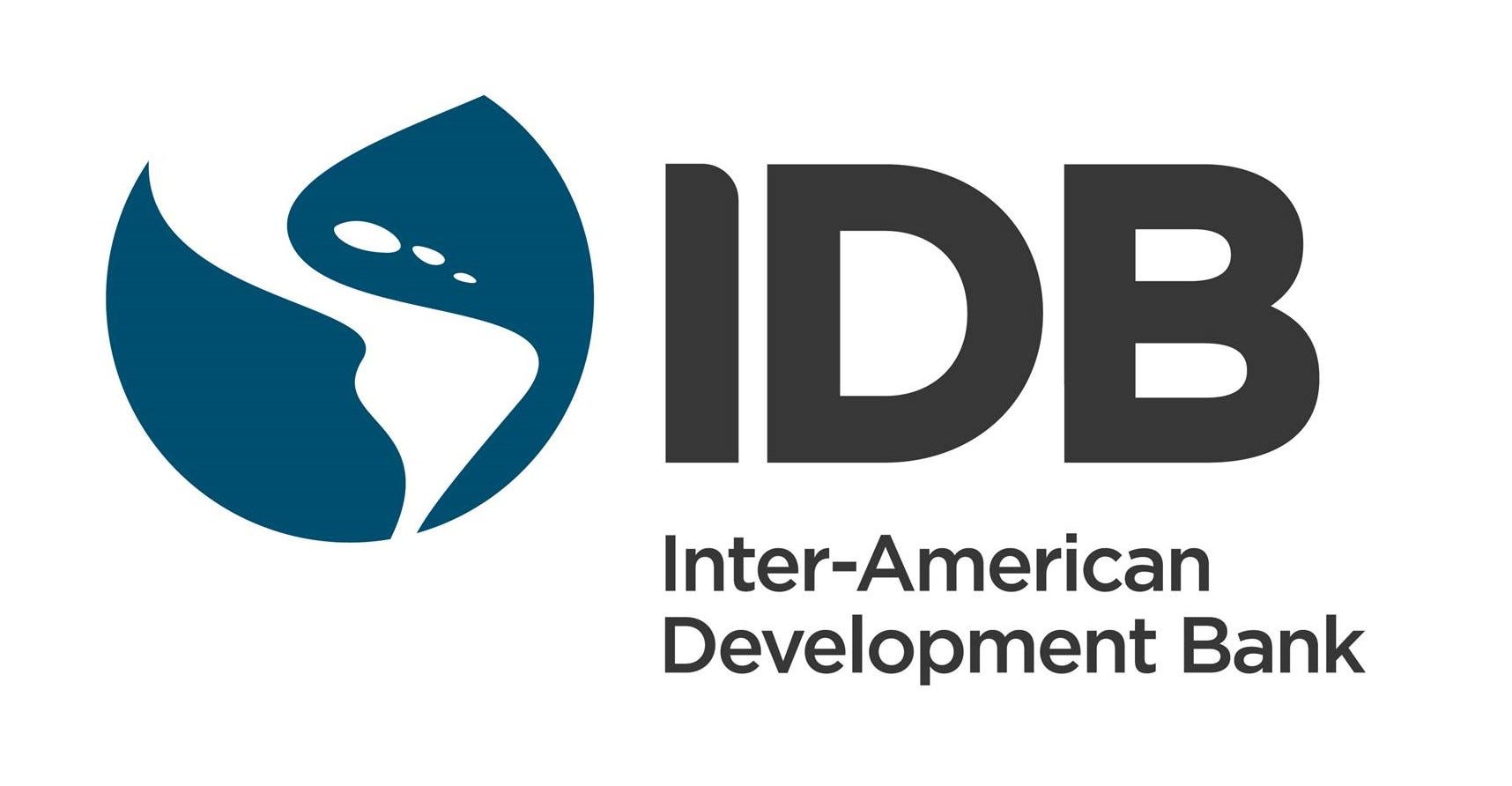
Last week, Bryan Mathers and I were in Washington DC, the home of American democracy, to work with the Inter-American Development Bank around alternative and digital credentials (a.k.a. Open Badges).
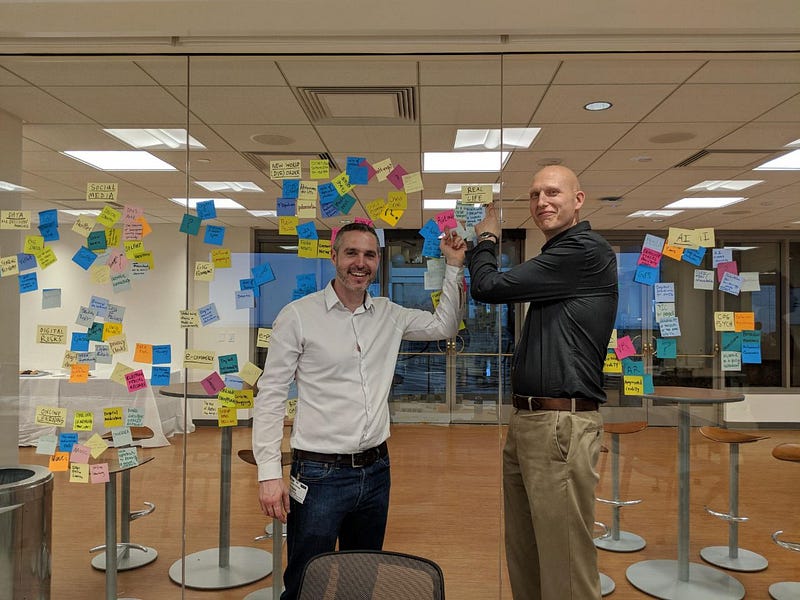
For those unfamiliar with IDB’s work, they describe themselves in the following way:
We work to improve lives in Latin America and the Caribbean. Through financial and technical support for countries working to reduce poverty and inequality, we help improve health and education, and advance infrastructure. Our aim is to achieve development in a sustainable, climate-friendly way. With a history dating back to 1959, today we are the leading source of development financing for Latin America and the Caribbean. We provide loans, grants, and technical assistance; and we conduct extensive research. We maintain a strong commitment to achieving measurable results and the highest standards of increased integrity, transparency, and accountability.
The Bank´s current focus areas include three development challenges — social inclusion and inequality, productivity and innovation, and economic integration — and three cross-cutting issues — gender equality and diversity, climate change and environmental sustainability; and institutional capacity and the rule of law.
After a good deal of planning with Stella Porto and her colleagues, we settled upon a structure for the two days:
- Day 1 — intensive full-day workshop for IDB staff across disciplines focusing on an introduction to badges and how they may be applicable in the context of economic development.
- Day 2 — smaller, ‘surgery’-type meetings with representatives of individual departments, to allow us to dive deeper into their particular context.
So, here’s a brief overview of some of the things we did…
Day 1
Instead of diving straight into badges, we wanted participants to think about the why of digital credentials. To that end, we modelled an activity which involved drawing the story of your career to date.
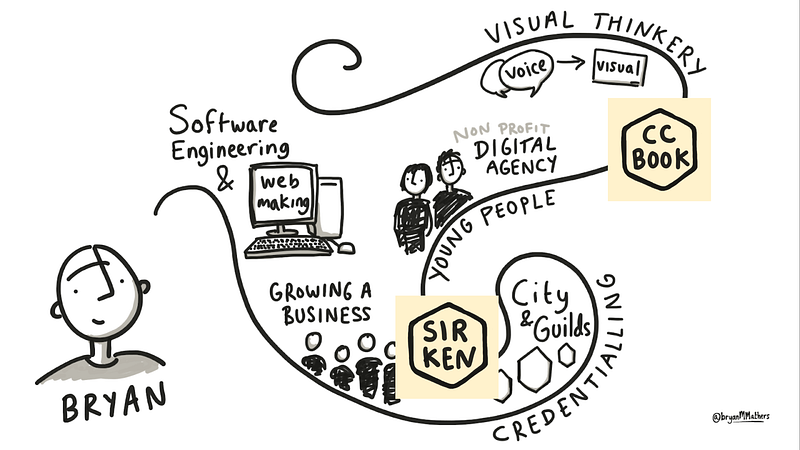
From there, we identified ‘credential-sized holes’ where, especially at moments of transition, something other than certificates proved to be important. These were represented on Bryan’s example with Sir Ken Robinson retweeting one of his images, and illustrating a book published by Creative Commons.
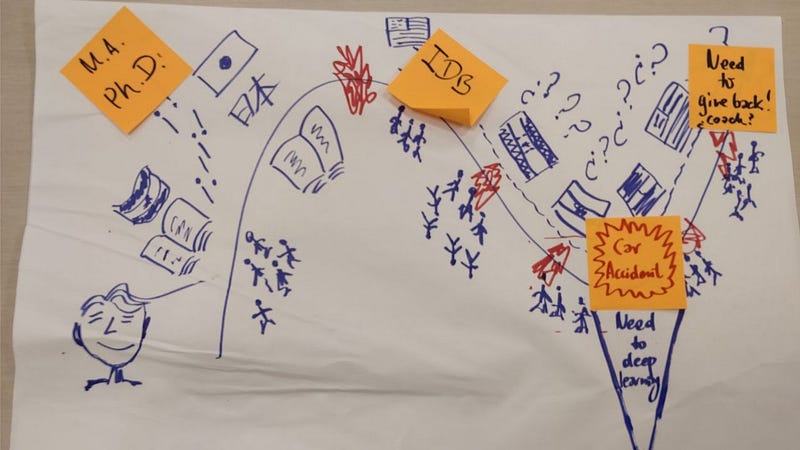
From there, we got participants thinking about how the world has changed over the last five years, to help them to think about things which are important now rather than in the past. We covered a glass wall with post-its and self-organised to group them into themes.
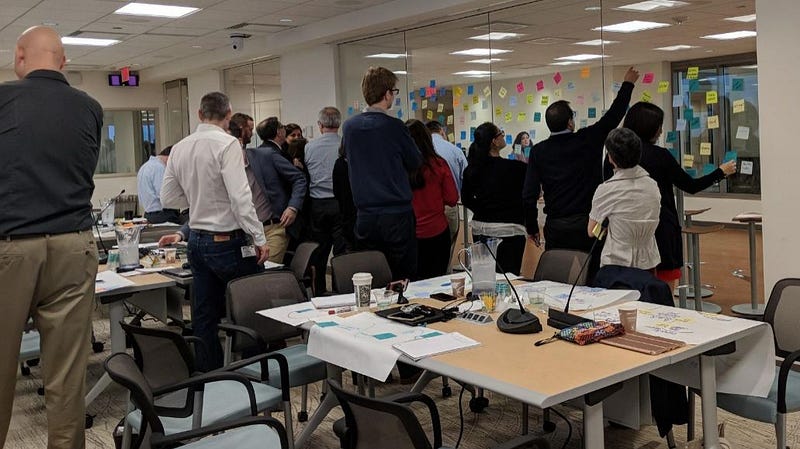
We parked those ideas to come back to later, and gave participants examples of badge systems which are different from your usual certificate-style credential, including those by Chicago City of Learning, Médecins Sans Frontières, and Deakin University.

The intention of the morning session was to provide participants with a context and rationale for digital credentials — that they provide a bridge in today’s society for people to be able to prove what they know and can do.
There were some interesting conversations which demonstrated that the activities we provided provided a ‘liminal space’ for participants to think differently both about their own careers and their roles in economic development at IDB.
By lunchtime, therefore, we felt that workshop participants were ready to start hearing about what the Open Badges standard is all about, and how it opens up a world of possibility for them.
After lunch, we presented an updated version of our ‘Bluffers Guide to Badges’ with significant time for Q&A. In addition, as badge often get conflated with concepts such as gamification, blockchain, and competency-based learning, we used a human spectrogram activity to spark a conversation.
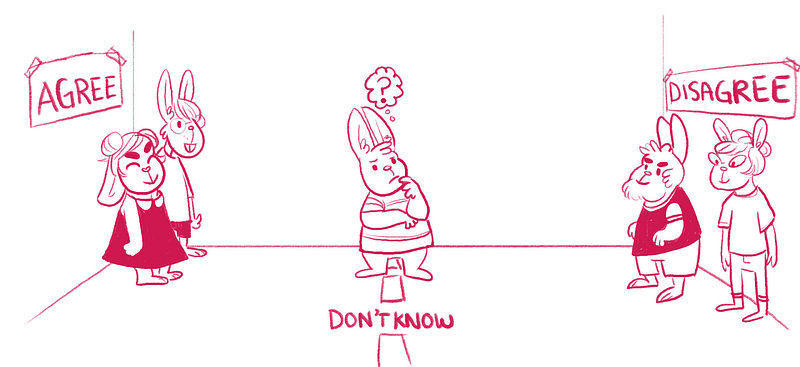
Interestingly, there was a mix between those who had thought deeply about these topics, and those for which they were entirely new.
Following this, we were pleased to use for the first time a tool that Bryan has been working on over the last few weeks. Badge Bloom worked particularly well in allowing participants to ideate and think through the process of creating relevant badges.
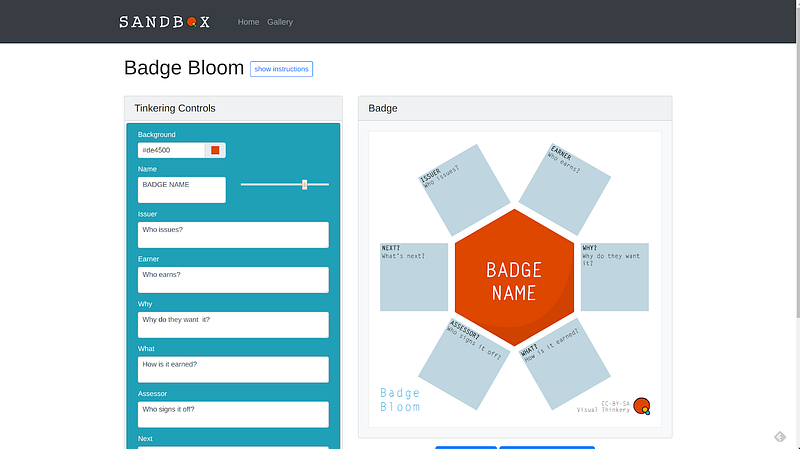
You can see some examples of what participants created below:
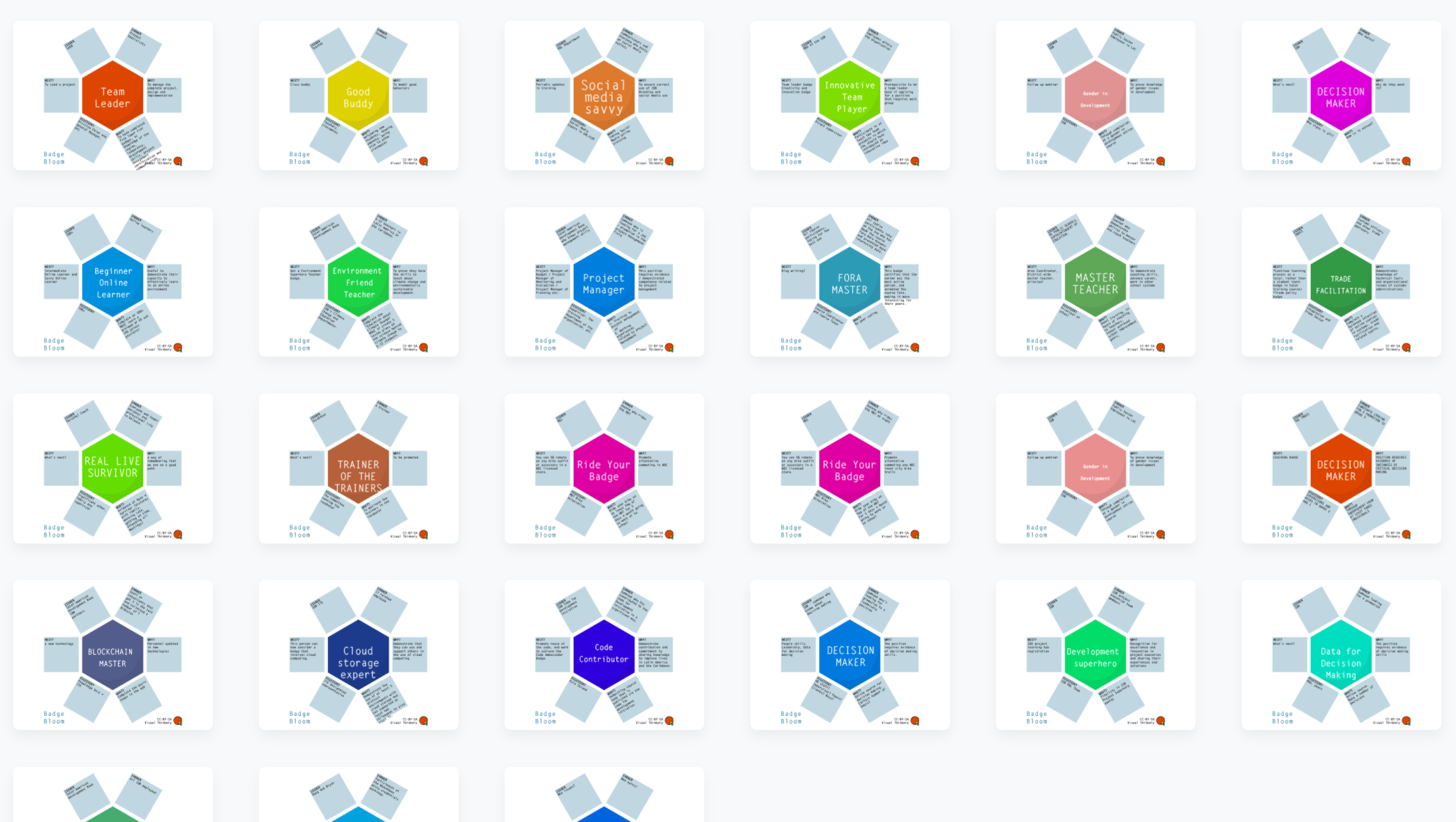
Moving onto considerations around badge pathways, we presented some ideas and concepts, before asking participants to either ‘break down’ or ‘build’ on their initial badge ideas.
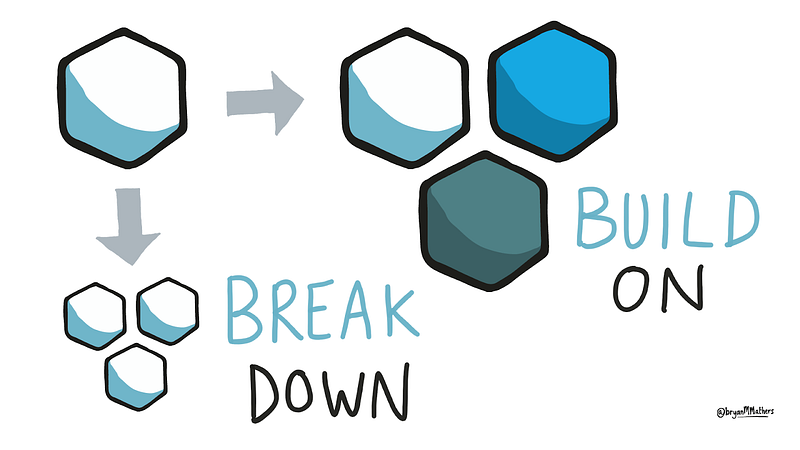
This led to some additional ideas as well as some interesting collaboration between participants, some of whom had definite ideas on how they wanted to use digital credentials by this point.
We ended Day 1 with a plenary where participants asked questions, posited scenarios, and wondered with us how badges could be used in their context. Four teams signed up for smaller-group ‘surgeries’ for the following day.
Day 2
The second day looked a lot like this:
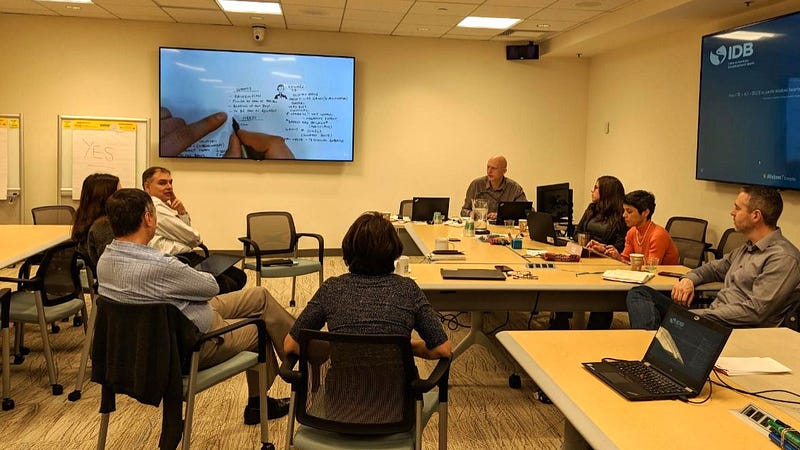
Diving into specifics with different teams, Bryan captured conversations using a visualiser plugged into the lovely, high-resolution screens on the wall of on of IDB’s classrooms. We asked participants hard questions, and attempted to help guide their thinking using the experience w’ve gained in digital credentialing over the last seven years.
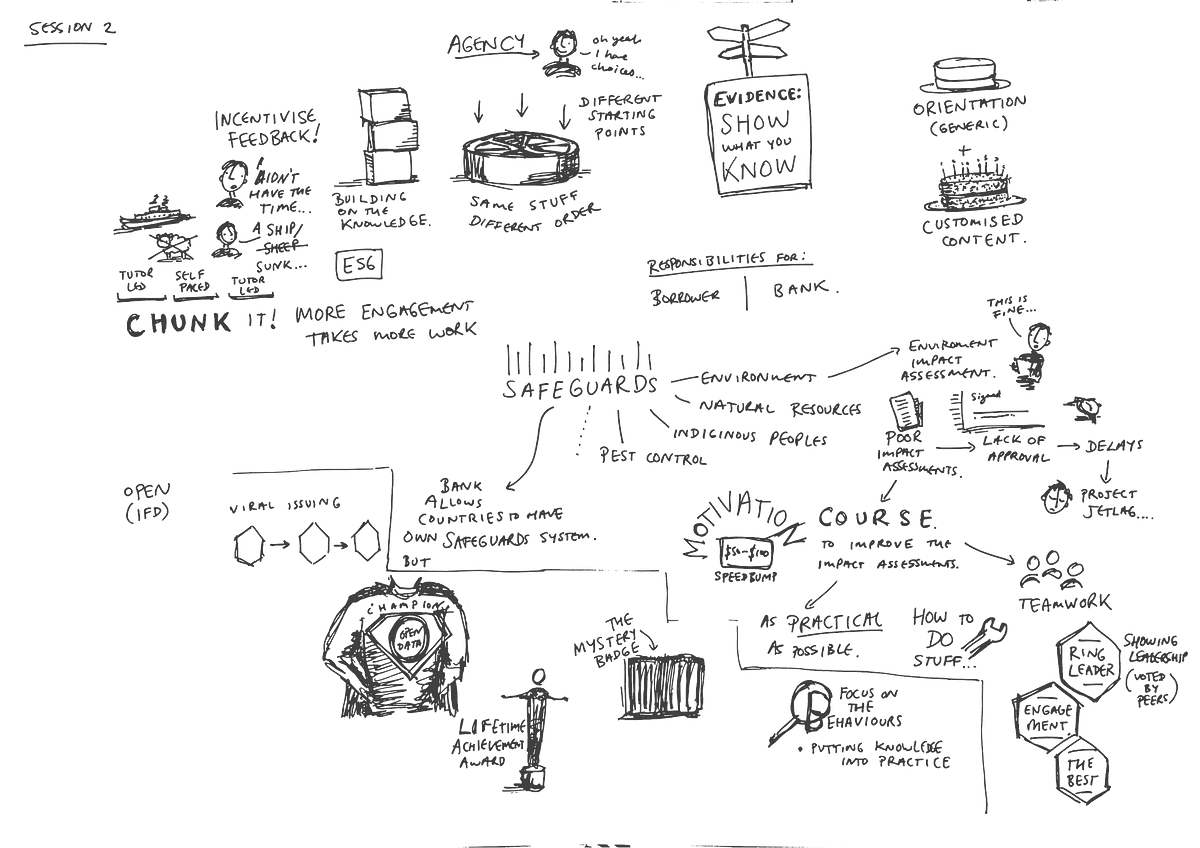
These surgeries lasted an hour and a half each, and were quite different each time. Some involved doing personas work, putting ourselves in the shoes of those participants are thinking of badging, others were more focused on logistics, still others about technical considerations.
Everyone left knowing what their next steps were, and we’ll be following-up with them soon to help them with those.
Given their scope and influence in Latin America and the Caribbean, we think IDB’s use of badges could be a huge deal. We had a great time over the two days, and our co-op is looking forward to helping IDB in the future on their digital credentials journey!
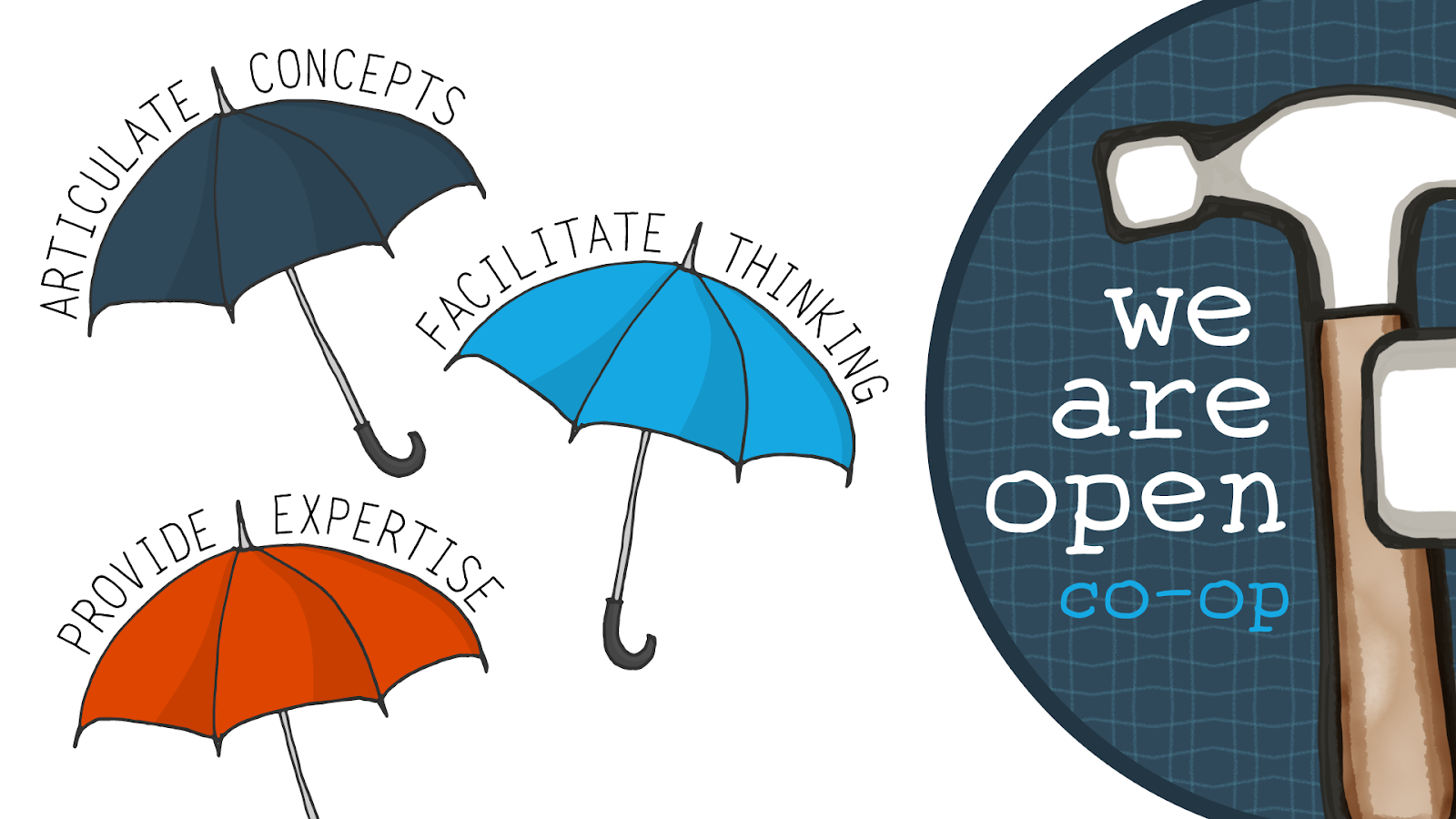
We Are Open Co-op works to spread the culture, processes, and benefits of openness wherever we can. Get in touch and see whether we can help you!
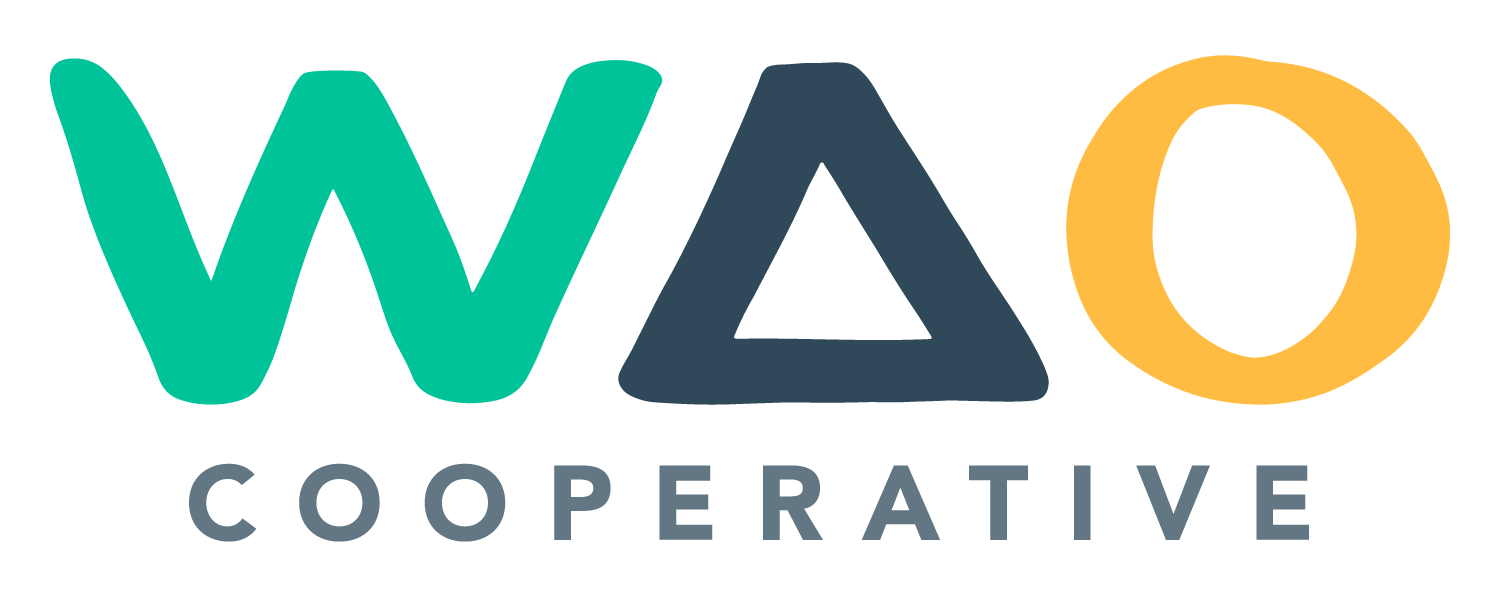
Discussion